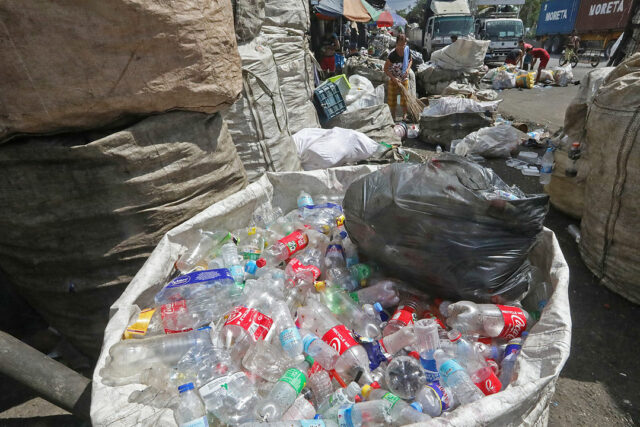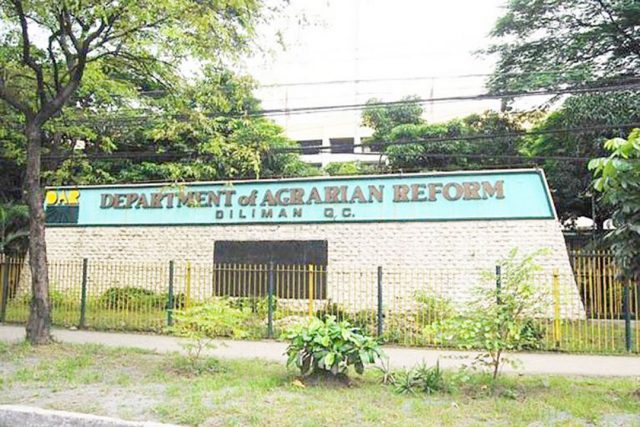Locators seek retention of tax incentive schemes
LOCATORS inside the Clark and Subic freeports asked the government to suspend the new rules which they said are taking away their tax incentives.
The request was contained in a joint resolution issued by the Clark Investors and Locators Association (CILA), Subic Bay Freeport Chamber of Commerce, American Chamber of Commerce, Metro Clark Chamber of Commerce and Industry, Tarlac Chamber of Commerce and Industry, Metro Clark ICT Council, and IT and Business Process Association of the Philippines.
The resolution is dated May 19 and was released to reporters on Thursday.
It calls for the immediate suspension of Revenue Regulations (RR) No. 21 2021 and Revenue Memorandum Circular (RMC) 24-2022, both issued by the Bureau of Internal Revenue (BIR).
The signatories said the implementing rules and regulations (IRR) of Republic Act No. 11534 or the Corporate Recovery and Tax Incentives for Enterprises (CREATE) Act and the two BIR issuances have “effectively stopped the enjoyment of the tax incentive and other fiscal perks,” as some investors are now charged value-added tax (VAT), among others.
“We appeal in the strongest terms for the government to cure the situation by ordering the review and amendment of the IRR and the immediate suspension of RR-21-2021, RMC 24-2022 in order to preserve the original intent of the CREATE Act,” the signatories said.
“The IRR and BIR revenue regulations RR-21-2021, RMC 24-2022 went beyond and against the provisions of the CREATE Act insofar as the transitory provision in Section 311 of Chapter VI is concerned,” it added.
According to the signatories, the IRR and the issuances have also caused “massive confusion as well as substantive impairment to the cost structure, business models and the viability of existing and potential investors.”
Asked for further comment, CILA Chairman Cristopher A. Magdangal told BusinessWorld by phone that the group is asking the executive department to honor the CREATE Law’s 10-year transitory provision.
The transitory period gives locators “ample time to restudy our business models and rethink our investment priorities,” Mr. Magdangal said.
“This (issue) applies as well across other freeport zones… It is making local suppliers less competitive because their costs are rising,” he added.
Last week, the Finance and Trade departments approved Rule 18 Section 5 of the CREATE IRR, which provides that transitory registered domestic market enterprises within an economic or freeport zone availing of the 5% gross income tax regime can register as VAT taxpayers.
Queried on the amendment, Mr. Madrigal said it will hamper loca or competitiveness.
“As far as our information is concerned, it is providing a channel for locators to pass on VAT to their customers. The very reason investors are coming into Clark is because of the incentives making them very competitive,” Mr. Magdangal said.
The inability to pass on VAT as 5% gross income taxpayers adds to the burden on locators, apart from the high cost of utilities and red tape, he added.
“We cannot pass on VAT because we are registered for the 5% tax on gross income earned (GIE). There is no mechanism to pass on VAT. But if we volunteer to register for VAT, what we’re losing is our competitiveness because our cost now will be 12% higher with VAT,” he added.
Mr. Madrigal added that locators have been incentivized to prefer imported raw materials instead of sourcing from domestic suppliers.
“If my company is export-oriented, I would rather import raw materials rather than getting from Philippine companies because that is what the law is telling us. We’re trying to communicate that to them, but we are having a hard time because they are focused on tax collection,” Mr. Magdangal said.
Finance Undersecretary Maria Cielo D. Magno said by phone that the real issue concerns Republic Act No. 10963 or the Tax Reform for Acceleration and Inclusion (TRAIN) Law.
“Their main contention is the cross-border doctrine, but the problem with that is it’s under TRAIN. Essentially, the TRAIN law made the domestic enterprises VAT-able and that only exporting companies or activities are entitled to zero rating. Even if domestic enterprises are located in freeports, they will have to be VAT-able,” Ms. Magno said.
“You don’t treat VAT as an incentive anymore. It’s a consumption tax. As long as it’s consumed locally, you have to impose VAT. Now what we’re trying to do is ready the domestic enterprises that are transitioning. That’s what we did (with the IRR),” she added.
According to Ms. Magno, the companies complaining are those that enjoyed the incentives prior to CREATE and were given a transitory period.
“The question is that under the original IRR of CREATE, they were imposed VAT, but not because of CREATE but because of TRAIN. What we’re trying to do here now is recognizing that VAT has to be passed on somewhere. The IRR of CREATE tries to address the concern without violating the provision of the TRAIN law,” Ms. Magno said.
“If you look at the last part of the IRR, even if they are under the 5% (GIE), they are allowed to be VAT registered and that’s a special case. It is only applicable to them. They can claim input VAT for zero-rated transactions,” she added. — Revin Mikhael D. Ochave










